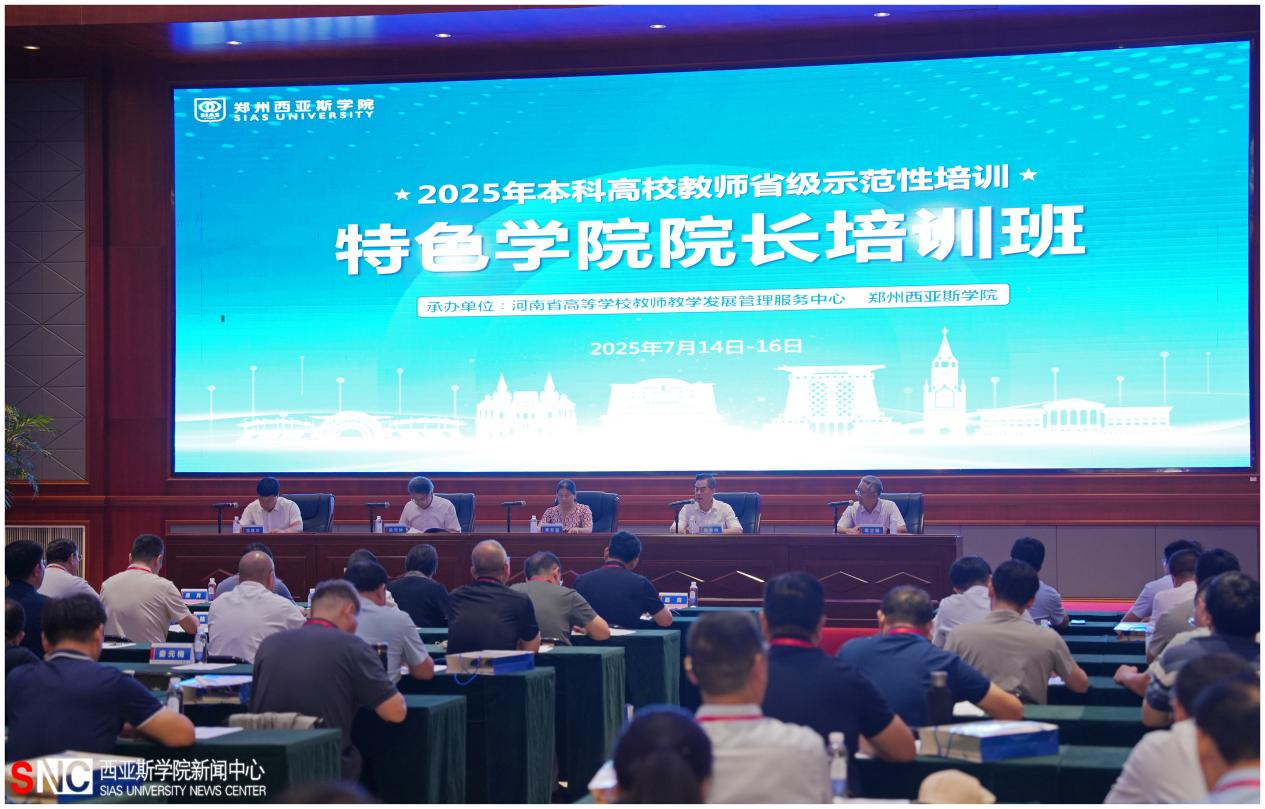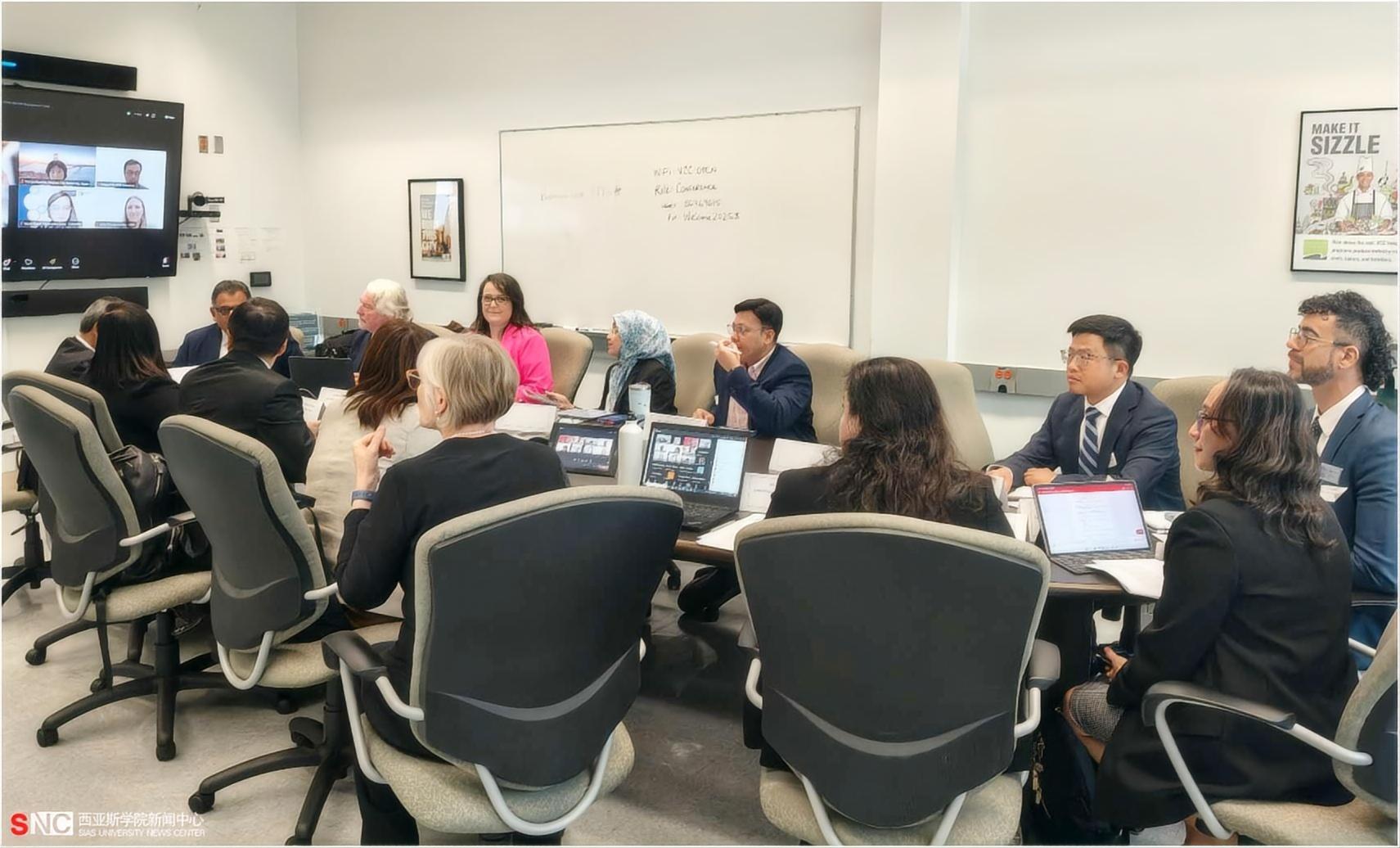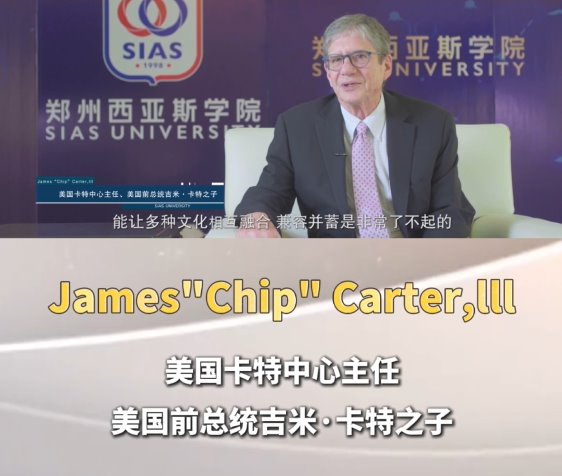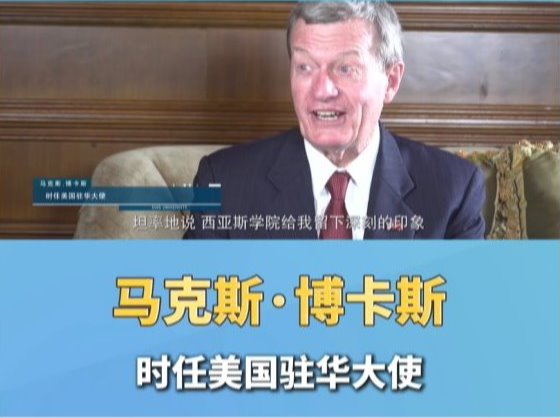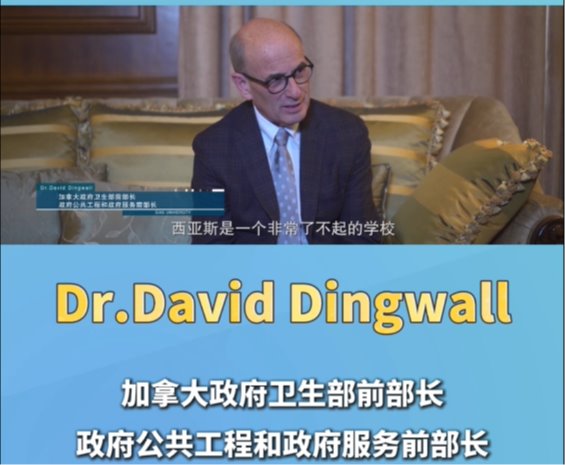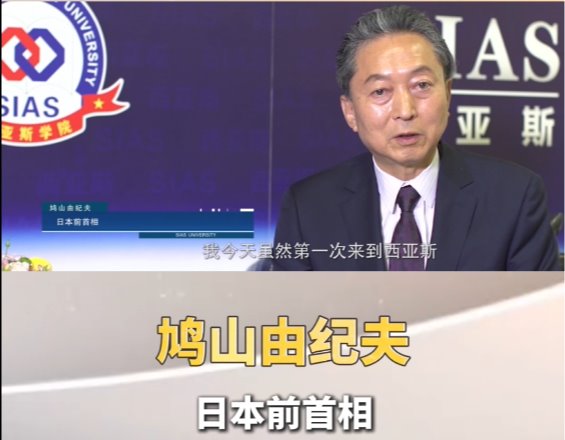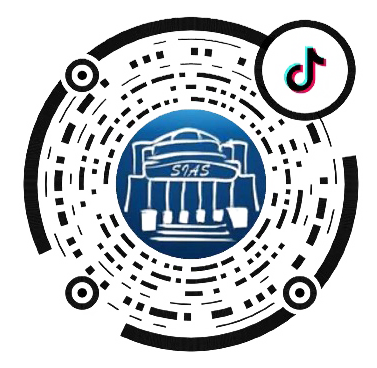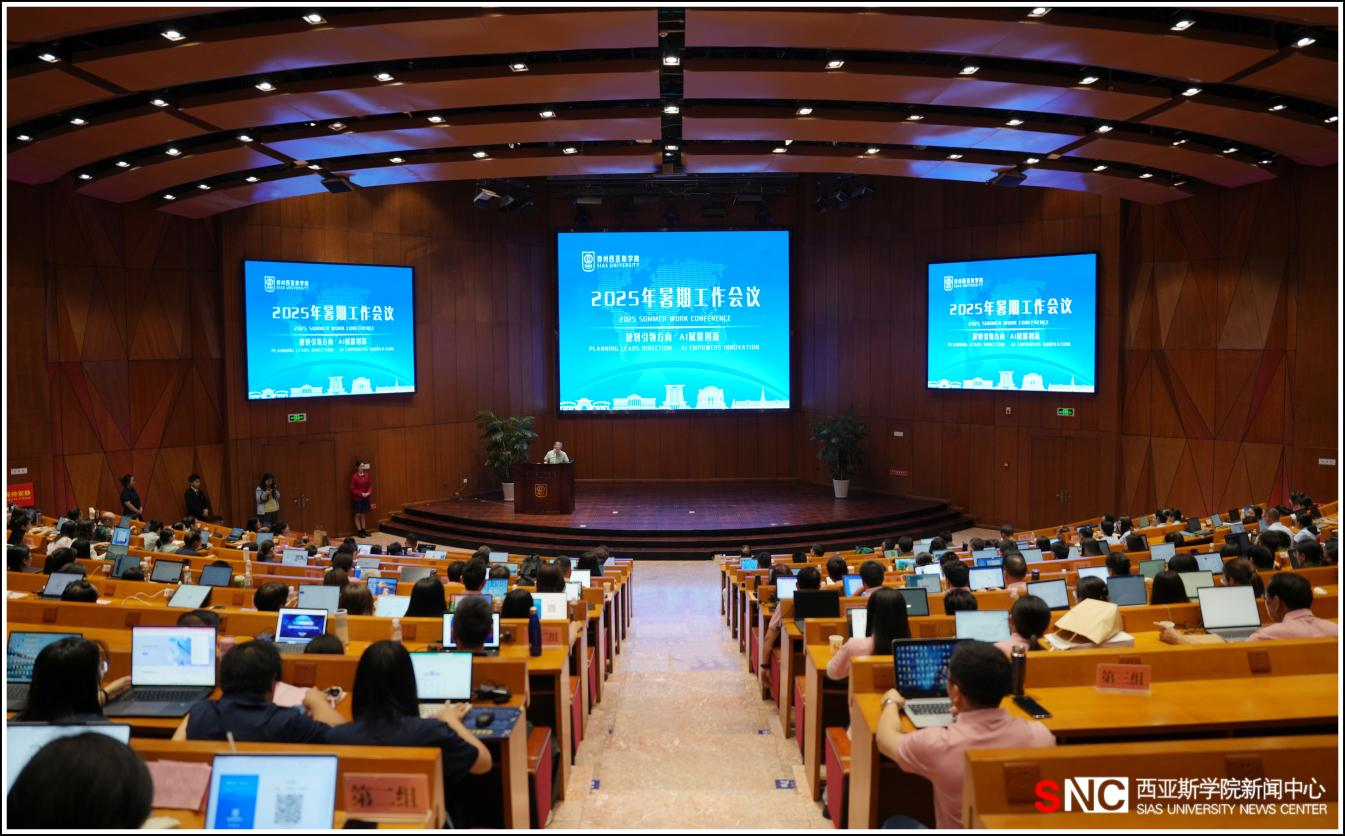
From July 11 to 13, Sias convened the 2025 Summer Work Conference themed "Planning Leads Direction, AI Empowers Innovation." The conference was attended by Dr. Shawn Chen, Founder and Chairman of Sias, all university leaders, mid-level leaders of various units, and administrative and teaching unit directors (including deputy directors) and above, to jointly deliberate on Sias's reform and development plans.
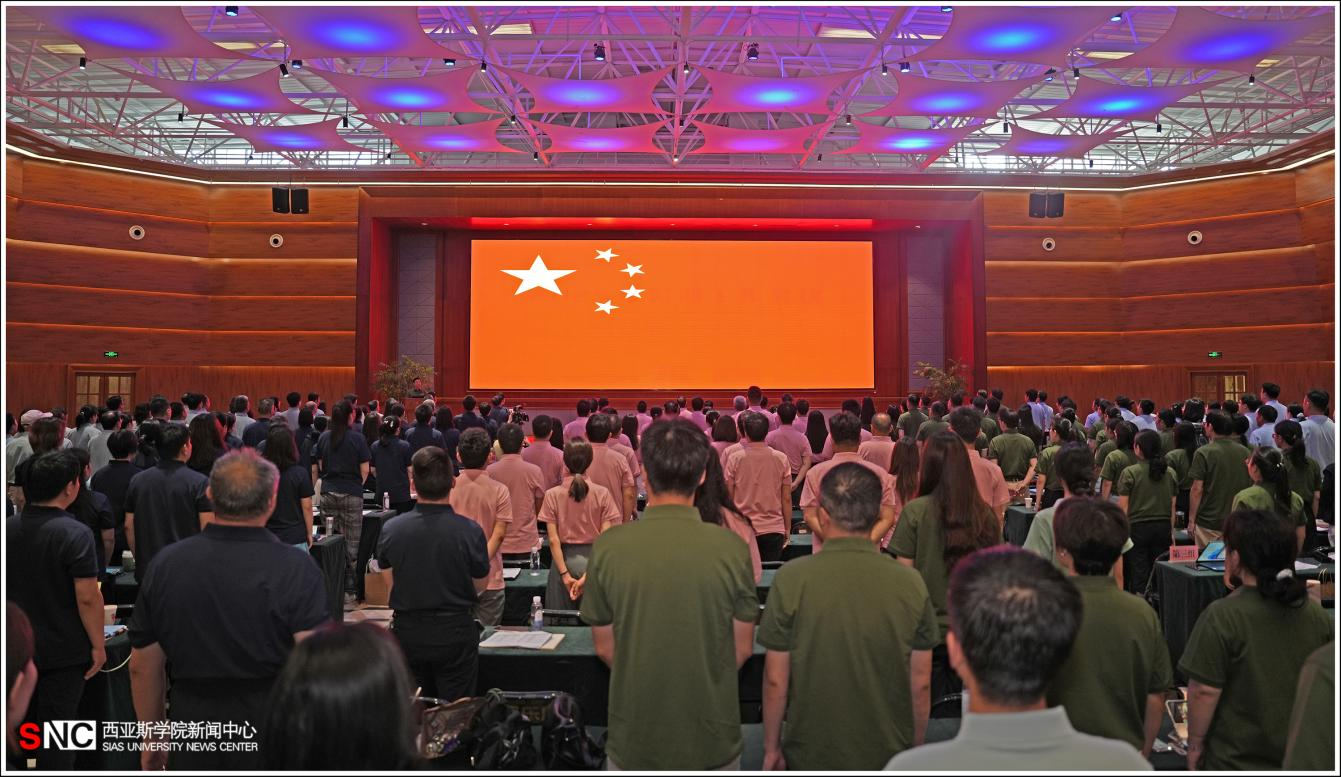
The conference adopted diversified formats, conducting six information technology-themed training sessions, one undergraduate teaching accreditation workshop, three presidential reports, one mobilization report, one expert report, one concluding report, organizing two group discussions, two roundtable forums, and five experience-sharing sessions during the two-and-a-half-day meeting. The content combined high-level theoretical guidance with practical experiences from colleges and academic departments, creating a research atmosphere that integrated theory and practice.
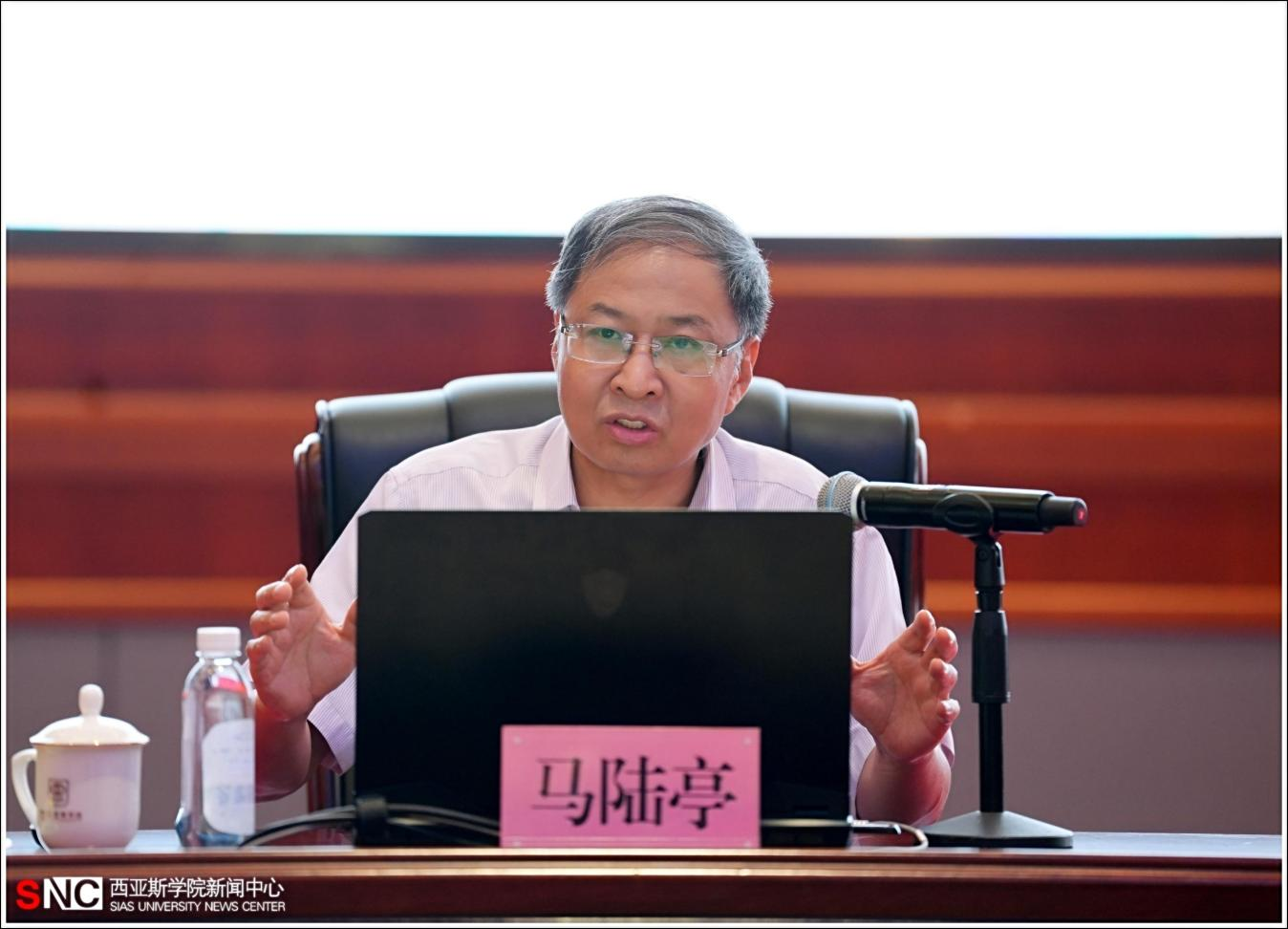
Ma Luting, former Vice President of the Chinese Academy of Educational Sciences and former deputy director of the National Institute of Education Development, delivered an expert report titled "Development of Local (Private) Universities in the Construction of an Education Powerhouse." He pointed out that educational modernization is a goal-oriented development process, which needs to support the construction of socialist modernization and meet the people's demand for high-quality education. Facing a new round of scientific and technological revolution and industrial transformation, scientific and technological innovation has become a key driving force, and high-quality educational development is the foundation of the future. He suggested that local universities should seize the window of high-quality development in the next decade, take the path of innovative development, focus on problem-solving as the direction of innovation, emphasize the logic of social demand, focus on cultivating students' innovative and implementation capabilities, and lead social development through the model of entrepreneurial universities serving regional needs.
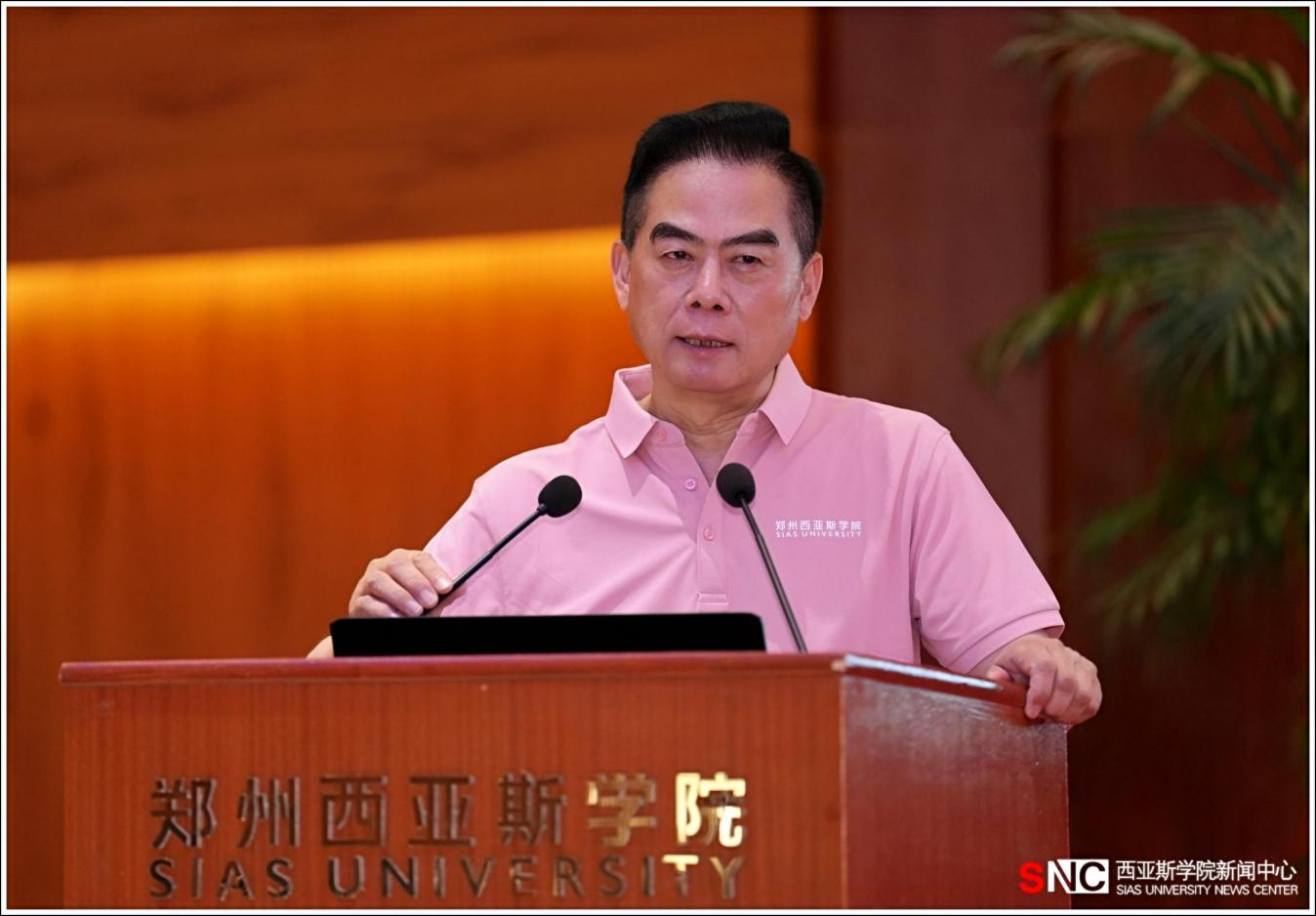
Dr. Shawn Chen, Founder and Chairman of Sias University, started his mobilization report by analyzing global AI development trends and delved into the reform direction of higher education in the AI era. Regarding Sias's development after passing the accreditation, he emphasized that internal construction should be the core, focusing on accreditation indicators, and striving to improve teaching quality, discipline development, scientific research and other weak links. Specifically, teaching quality should shift to "student-centered," discipline development should closely align with the directions of "new engineering, new medicine, new agronomy, and new liberal arts," strengthen the transformation of scientific research achievements, and enhance practical teaching and academic competitions. In terms of reform, Sias will promote AI+X teaching reform, "large department system" reform, and deepen the residential college system, establish special working groups to advance precise classification, start the formulation of the "15th Five-Year Plan," decompose annual tasks, prepare for the 30th anniversary celebration in 2029, and fully strive for accreditation.
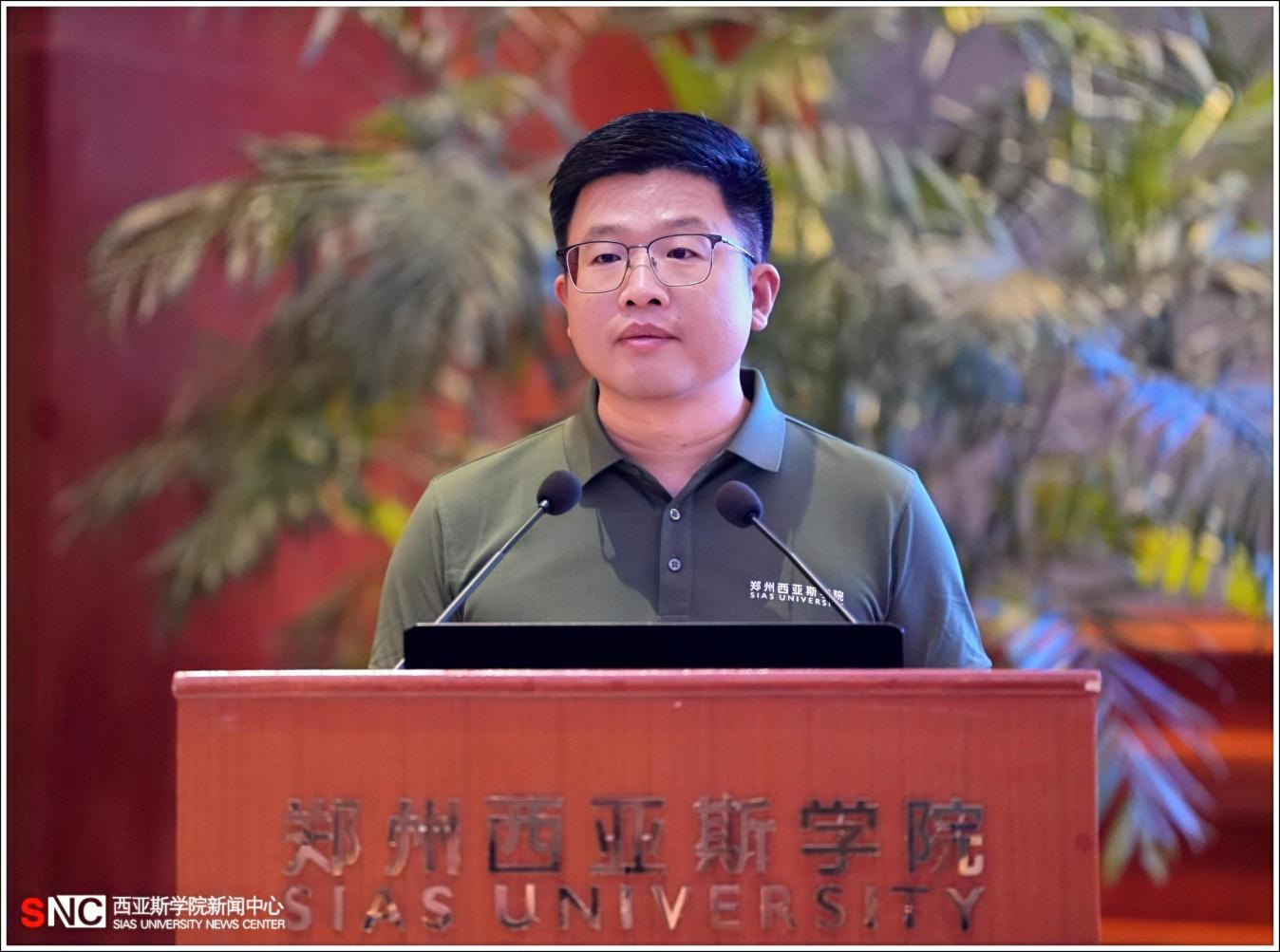
Wu Hua, Deputy Secretary of the CPC Sias Committee, Executive Vice President, and Chairman of the Labor Union, pointed out in his report "Sias Alumni: A New Force Upholding Integrity, Innovation, and Promoting Reform" that alumni, as direct products of Sias's talent cultivation, have a bidirectional and active academic relationship with the university. Sias cultivates alumni with high-quality resources, and alumni in turn feed back the university through their own development. By sharing successful cases of outstanding alumni, he proposed to activate alumni resources, leverage the unique advantage of "emotional connection and mutual prosperity" between alumni and the university, and transform Sias educational achievements into sustained driving force for talent cultivation.
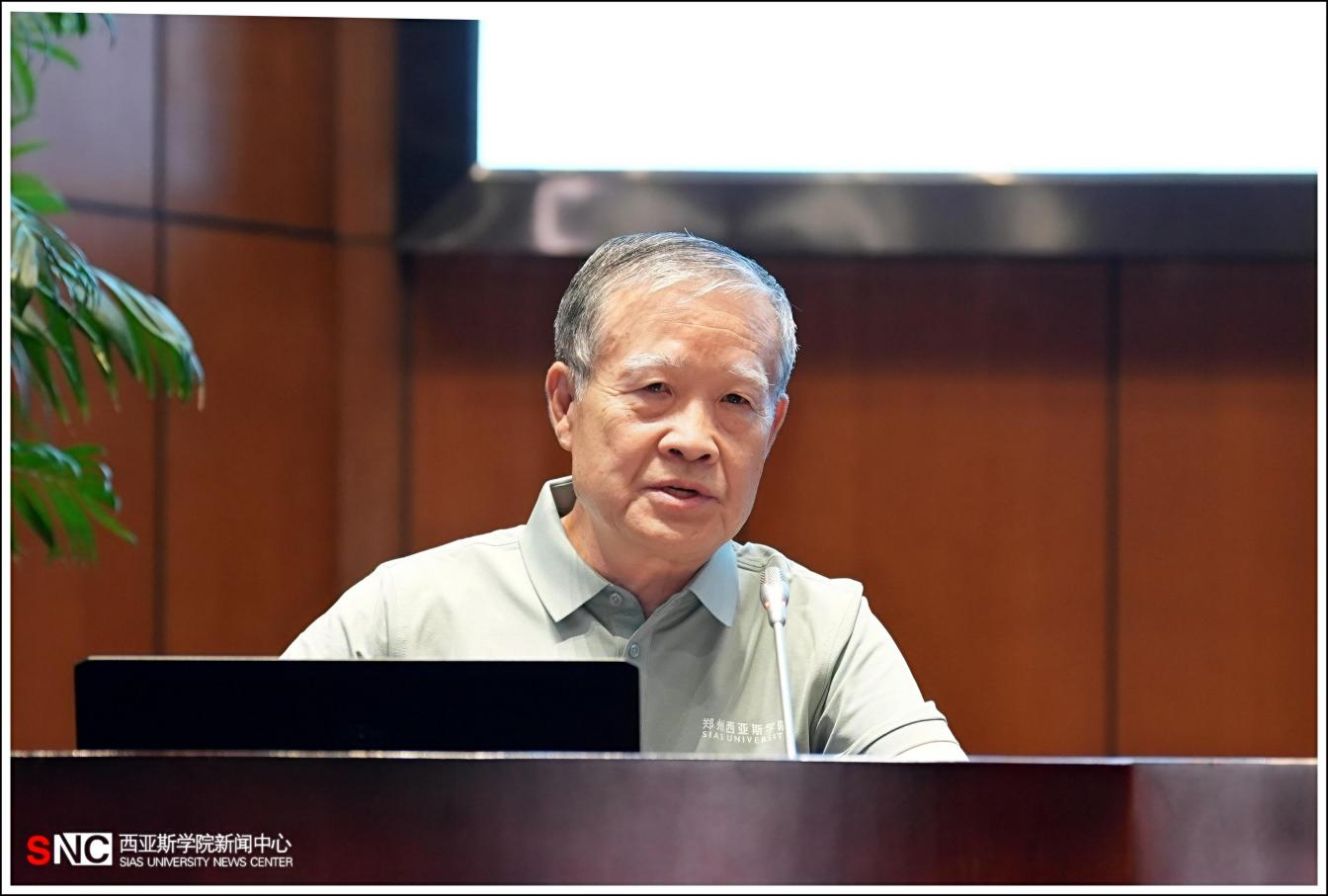
Zhao Yuxin, Vice President, Secretary of the CPC Sias Commission for Discipline Inspection, and Director of the Academic Affairs Department, summarized the training achievements of the AI+X curriculum reform in various professional colleges in his report "Solidly Implementing the Training Achievements of AI+X Curriculum Reform to Promote Continuous Quality Improvement and Innovation in Education and Teaching at Sias." He clarified that in the coming period, the university will take artificial intelligence empowering classroom teaching as the core reform goal, and comprehensively promote AI+X teaching reform from seven dimensions: all teachers use basic AI tools to empower teaching, use AI to realize deep "teacher-student-machine" interactive classrooms, build AI-exclusive intelligent agents to organize teaching, use AI to establish course knowledge graphs, promote autonomous and research-based learning, reform experimental and internship teaching, and optimize teaching evaluation methods.
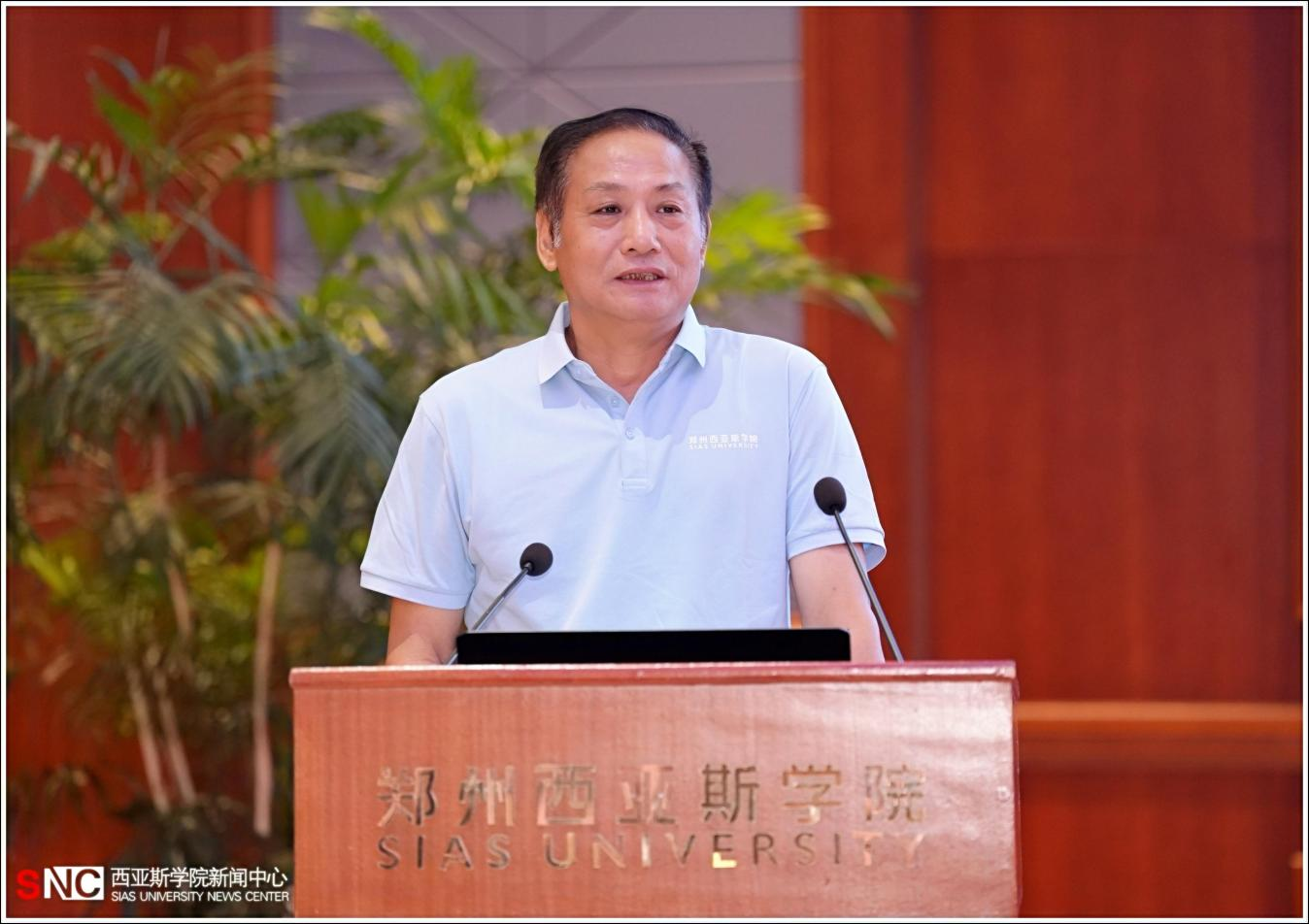
Yuan Guanglin, Vice President, Chairman of the Board of Supervisors, and Director of Scientific Research Department, systematically interpreted the "Framework of the 15th Five-Year Plan for Sias University," emphasizing that during the "15th Five-Year Plan" period, the university will take internal construction as the top priority, closely focus on the fundamental task of fostering virtue and cultivating people, center around core goals such as improving teaching quality, meeting accreditation standards, and upgrading the educational level, and strive to build a high-level applied private university that is first-class in the province, well-known nationwide, and has distinctive international characteristics. The planning framework clarified key tasks such as discipline and professional construction, reform of talent cultivation models, construction of teaching staff, scientific research innovation and social services, and digital campus upgrading, emphasizing that all tasks need to form a coordinated effect to ensure the implementation and effectiveness of the plan.
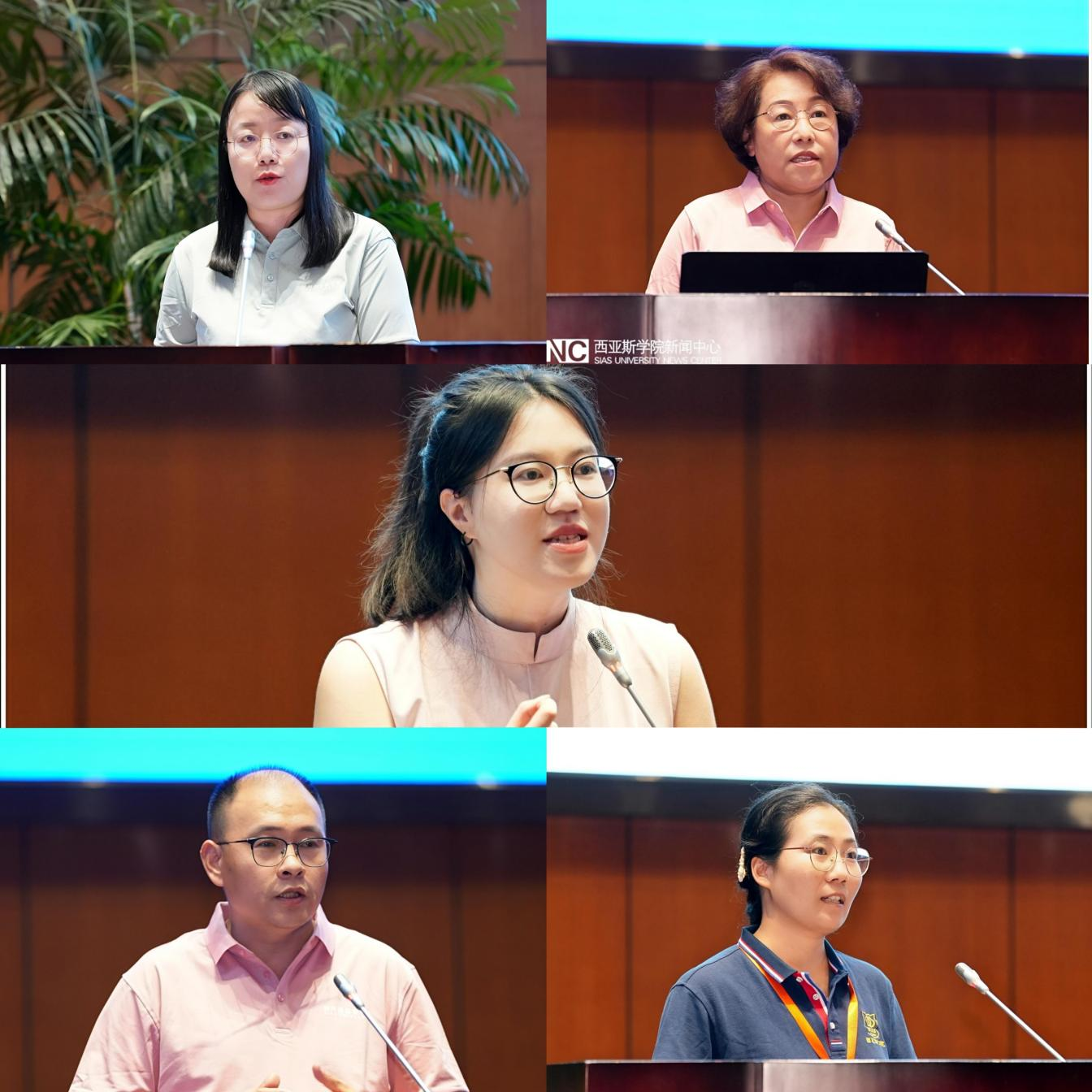
During the conference, Shan Guoli, Deputy Dean of the Academic Affairs Department, systematically interpreted the essence, connotation, and indicator system of the new round of accreditation, as well as the demands and key points of the new round of accreditation for Sias's informatization, pointing out that the focus of accreditation lies in internal construction, characteristic development, and innovative development. Microsoft trainer Shen Yijia conducted four practical training sessions on M365 tools, OneDrive, Teams, and other office software. Li Xia, Consultant of the Information Construction and Management Department, and teachers Wang Bingju and Zhang Limei respectively shared content on data governance and utilization, prompt words and intelligent agents + AI office applications, helping teachers enhance their digital teaching capabilities.
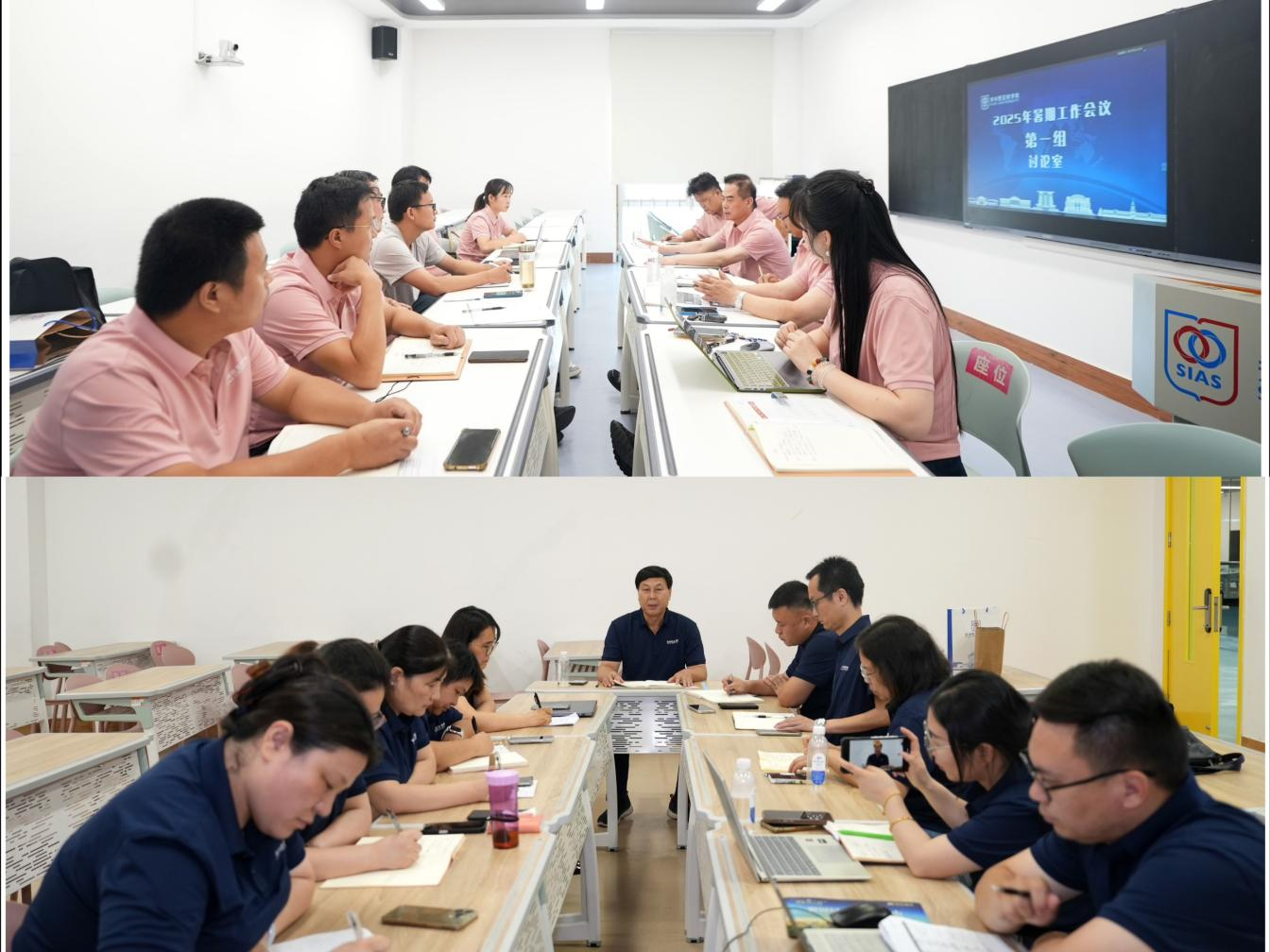
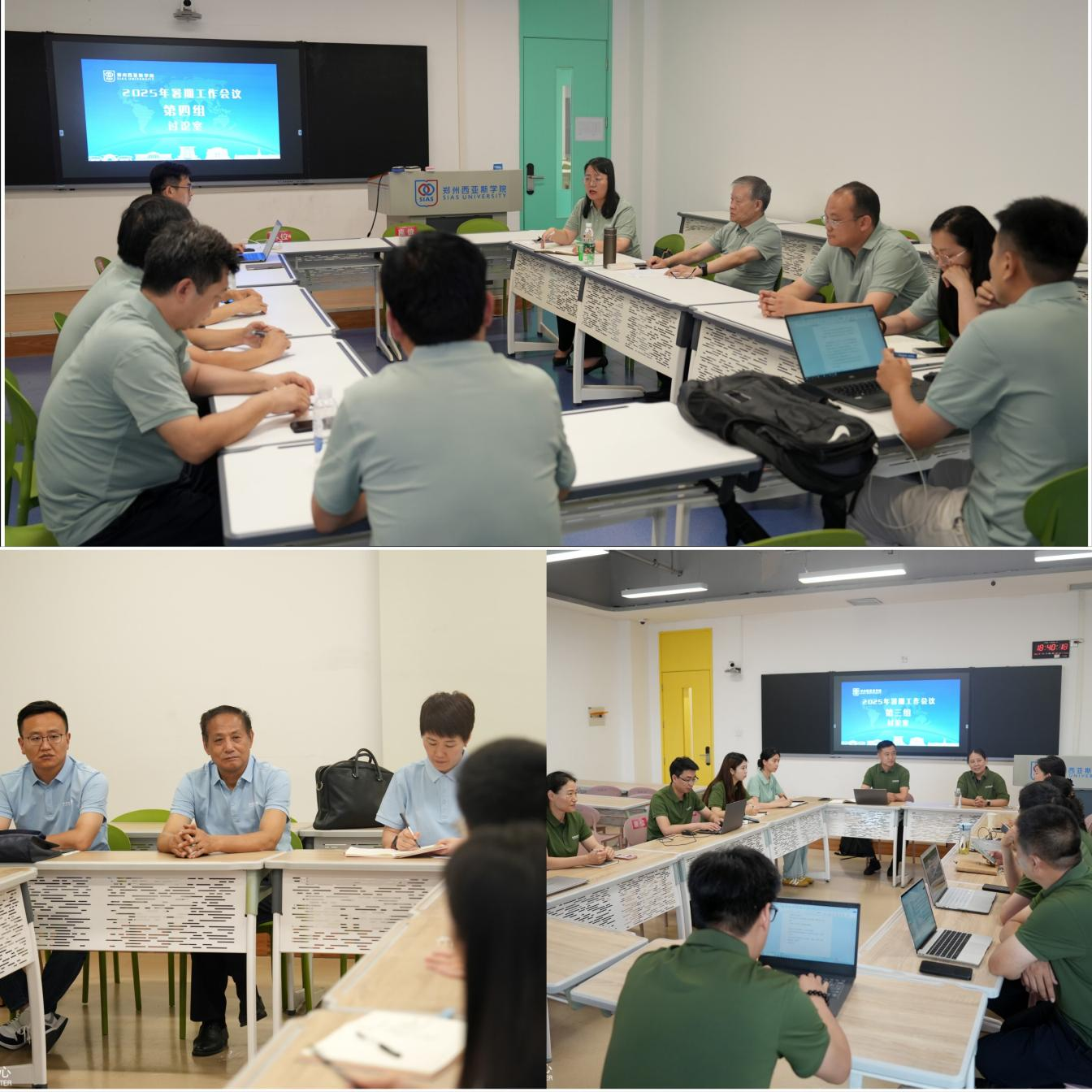
Group discussions revolved around the themes "Reflections on Outstanding Alumni" and "My Views on the '15th Five-Year Plan' of Sias University." Each group combined the growth experiences and success stories of alumni to discuss the advantages and disadvantages of the university's talent cultivation model, and put forward constructive suggestions for the compilation of the "15th Five-Year Plan," draw consensus for Sias's long-term development.
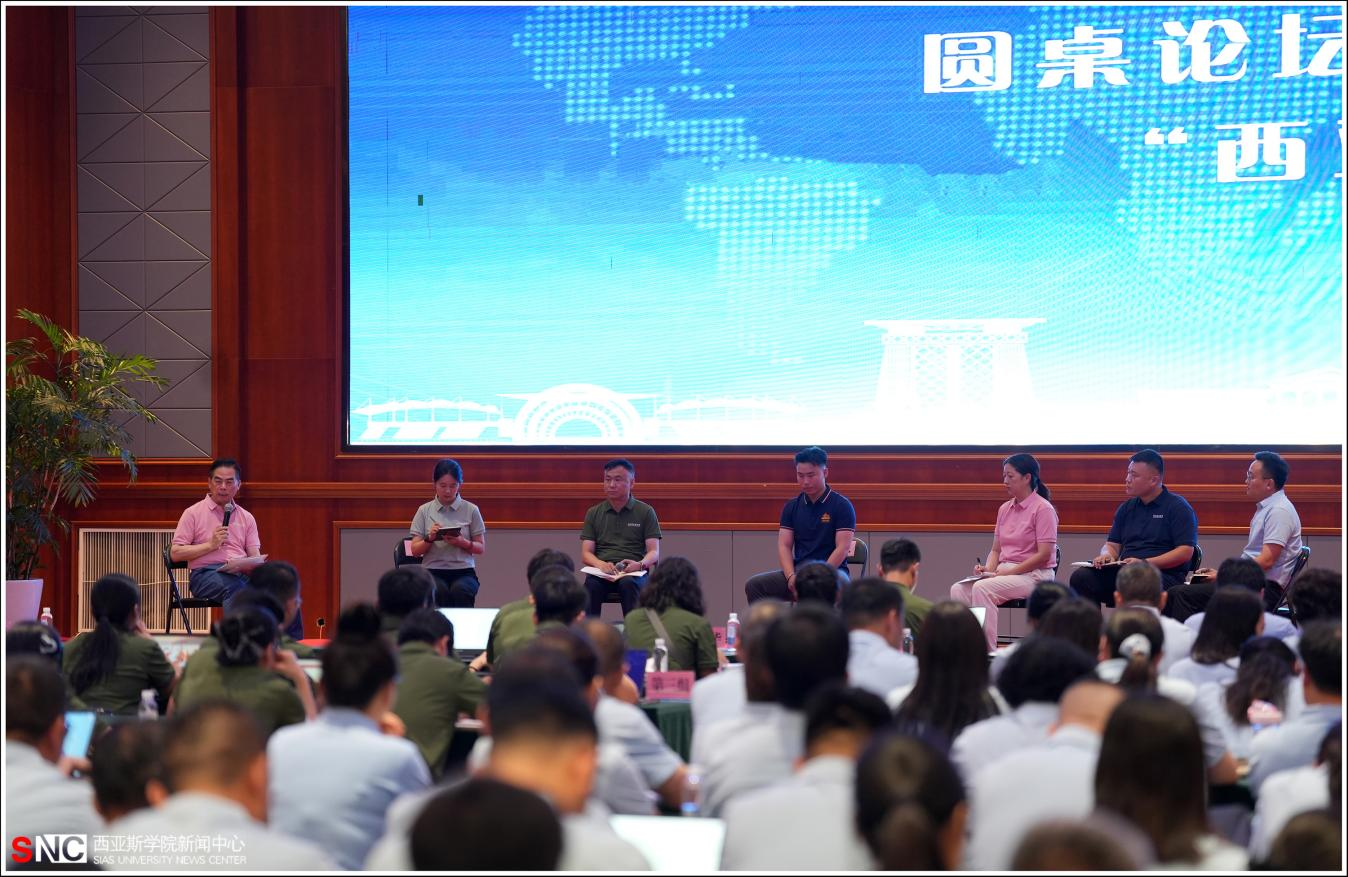
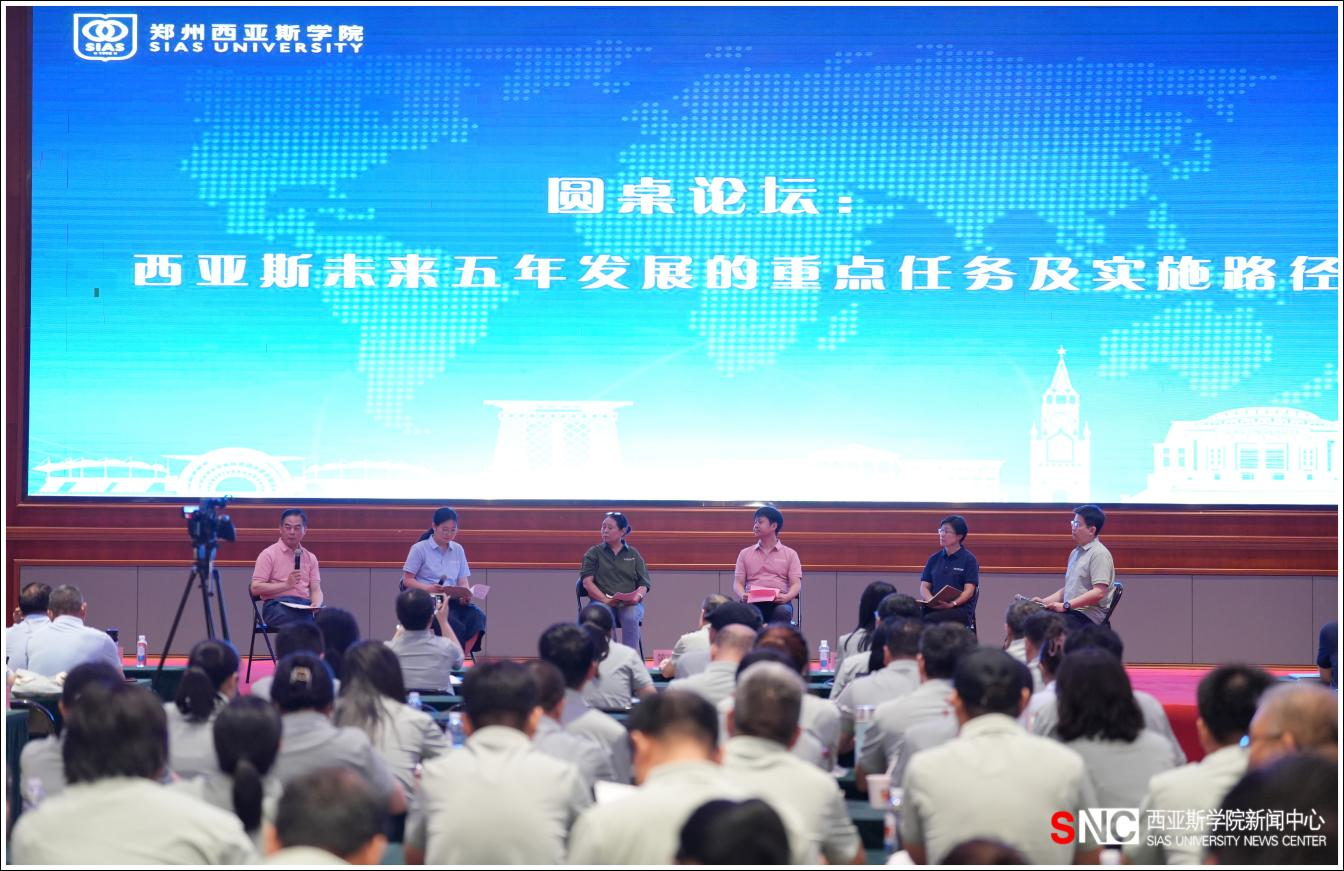
At the roundtable forums, focusing on "The Sias Gene in the Phenomenon of Outstanding Alumni" and "Key Tasks and Implementation Paths for Development in the Next Five Years," university leaders, deputy group leaders of each group, alumni representatives, and teacher representatives jointly analyzed core development issues and clarified practical directions.
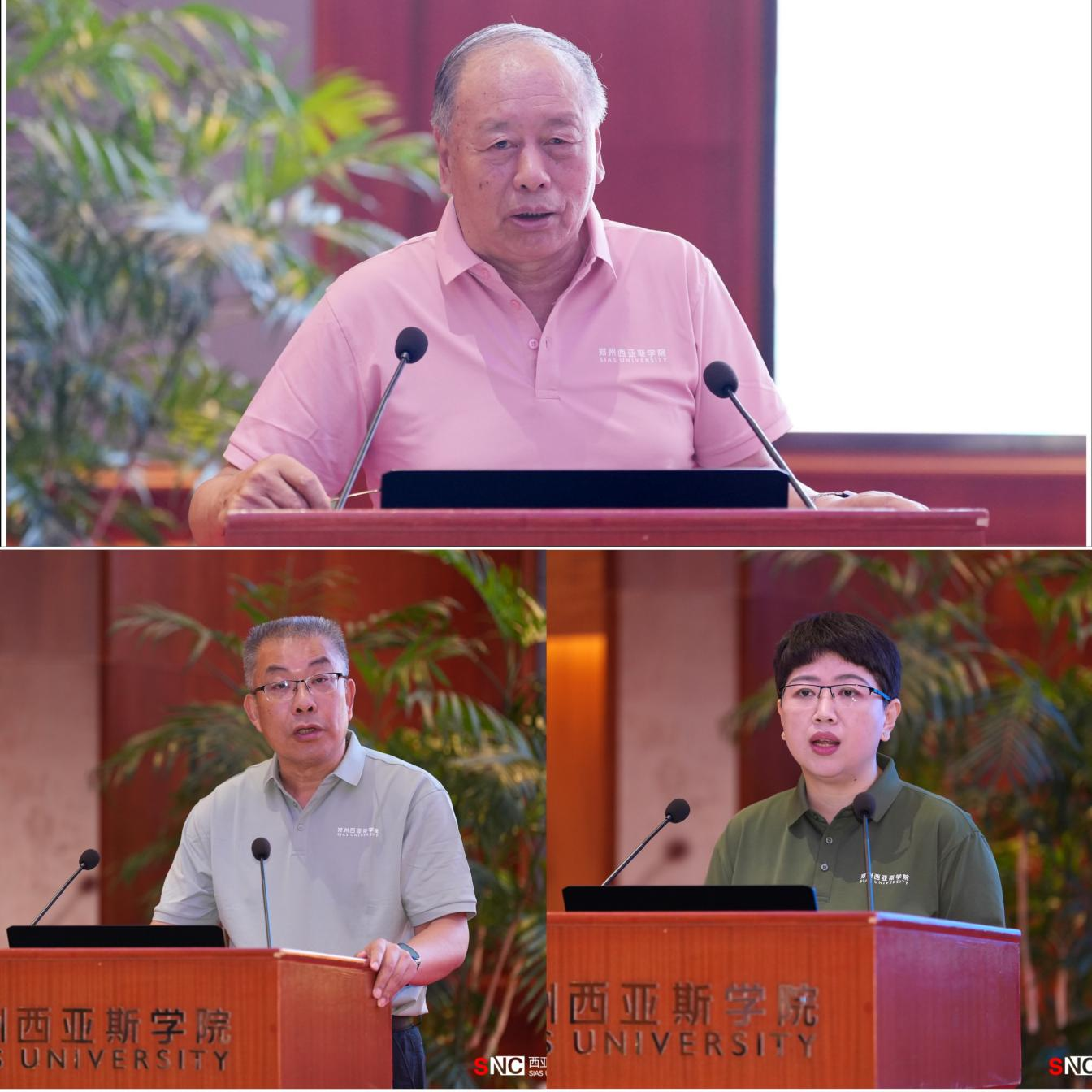
In the experience-sharing session, leaders from the School of Physical Education, Digital Technology Industry College, Faculty of Engineering, International Education Faculty, and School of Education respectively shared practical experiences on hosting high-level competitions, cultivating new types of industry-education integration talents, improving students' academic competition performance, implementing precise classification and full credit system reforms, and enhancing graduate enrollment and employment rates, providing referenceable vivid examples for the entire university.
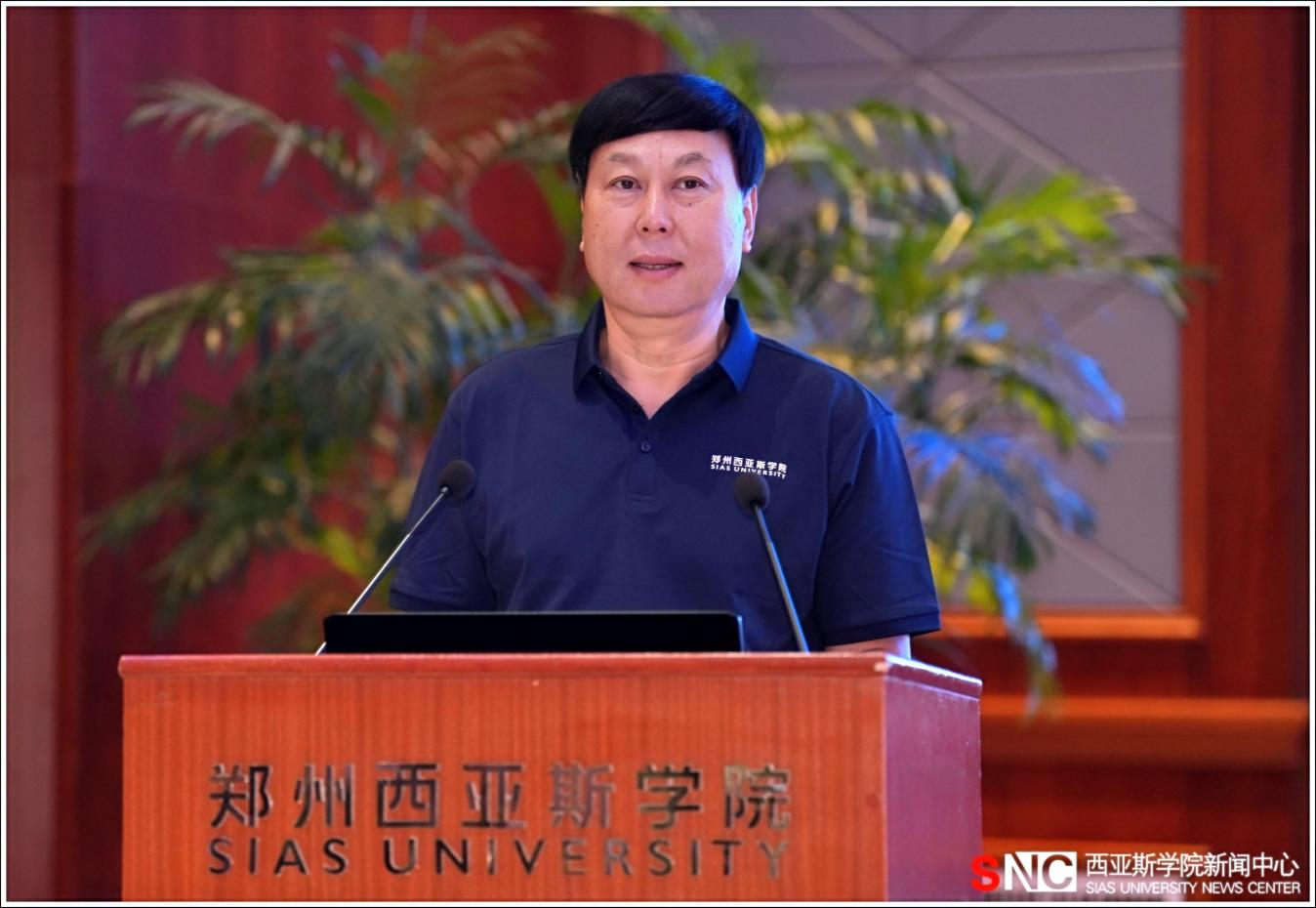
Finally, Ma Jiansheng, Secretary of the CPC Sias Committee, emphasized in his concluding report that this conference is a strategic meeting at a critical juncture in Sias's development, with fruitful results and far-reaching significance. All members of the university should take this conference as a new starting point and translate the conference results into practical actions. Future work will focus on three key areas: first, accelerate the promotion of information technology construction and deepen the deep integration of AI technology with education and teaching; second, comprehensively enhance the level of internal construction and build core competitiveness; third, strengthen Party building and ideological and political work, and lead high-quality development with high-quality Party building. He called on all teachers and students to plan scientifically with the wisdom of "being good at planning ahead" and implement resolutely with the responsibility of "taking practical actions first," to ensure the realization of the "15th Five-Year Plan" goals as scheduled.
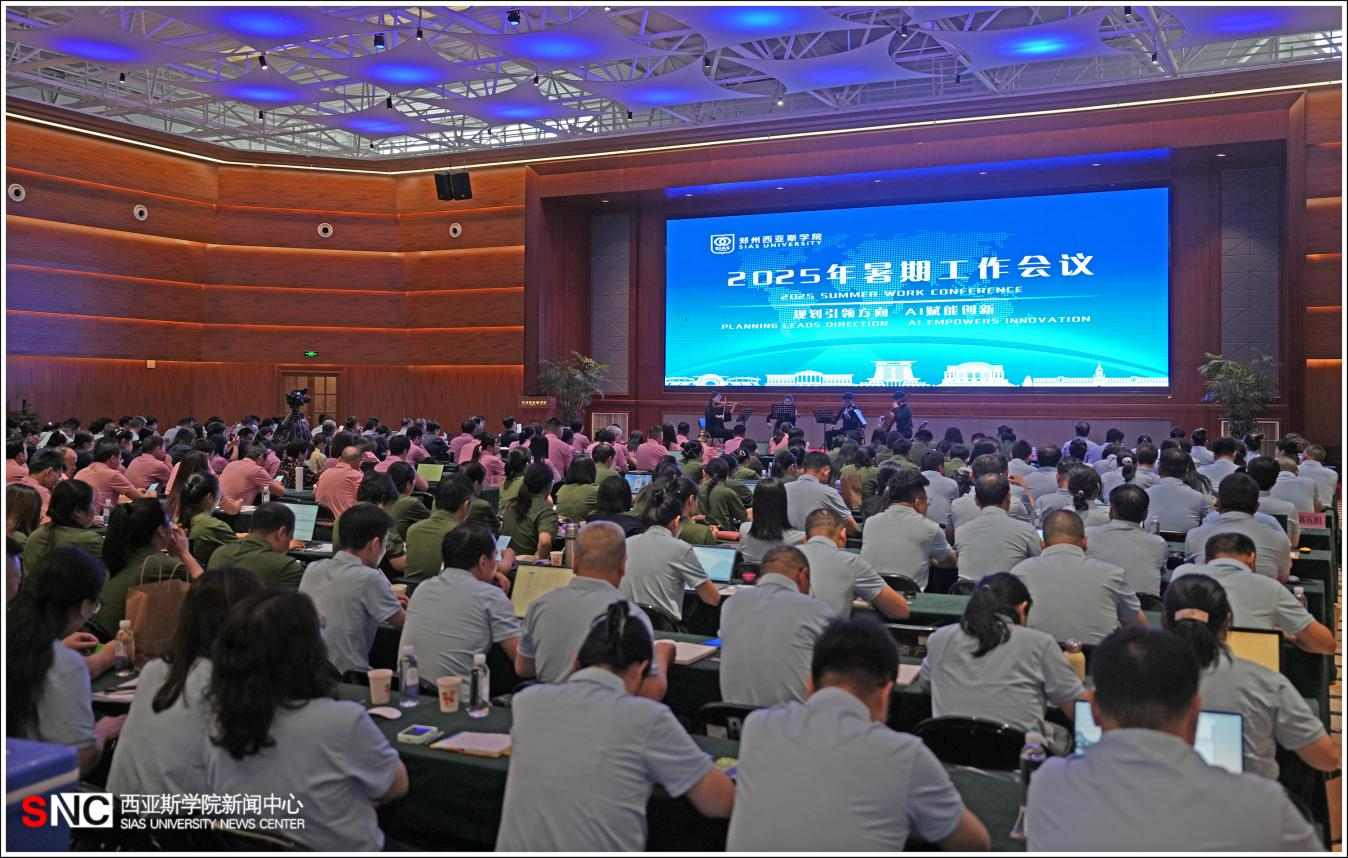
After the conference, participants expressed that this training canceled the group scoring and evaluation system, and the training methods were in line with the actual needs of frontline teaching, paying more attention to practical results. Case sharing, on-site practical operations, group discussions, and other interactive links enhanced participation and practicality, and many experience sharings could be directly applied to daily teaching in the next semester. In the future, they will keep pace with Sias's reform steps, empower classroom teaching reform with artificial intelligence, and contribute to the university's high-quality development.
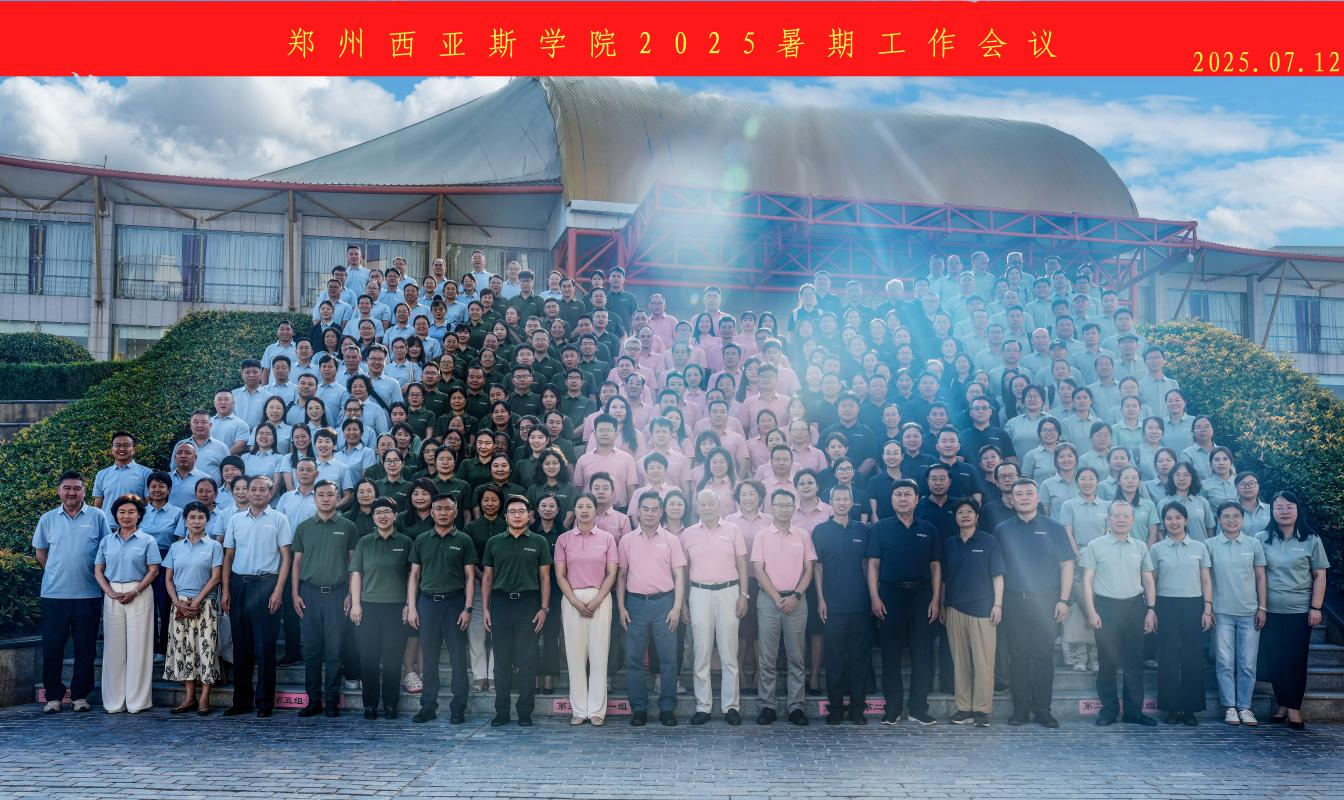
The holding of this conference has identified the goal and clarified the path for Sias's development in the AI era. Sias will take the "15th Five-Year Plan" as the guide and scientific and technological innovation as the driving force, continuously deepen education and teaching reform, comprehensively improve the quality of running the university, and steadily move towards the goal of building a distinctive high-level applied private university.





